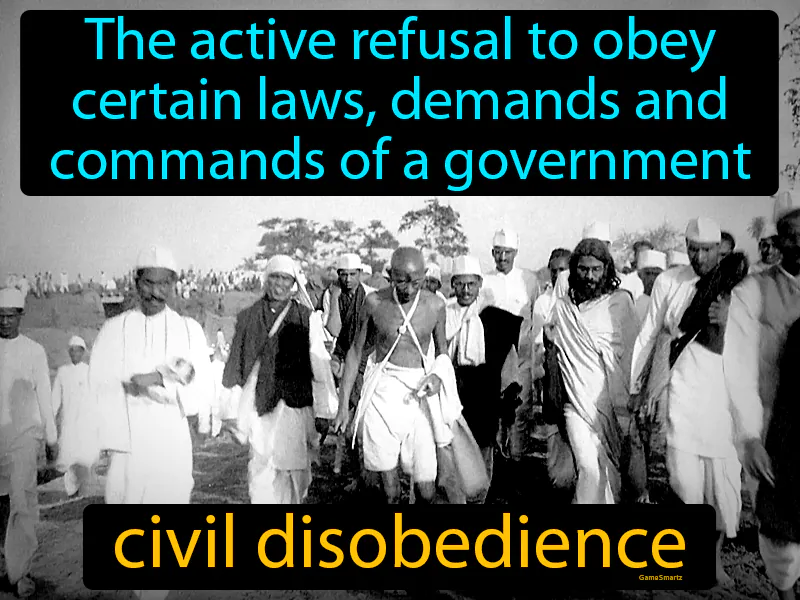Civil Disobedience
Civil Disobedience: Easy to understand
Between 1910 and 1939, civil disobedience played a crucial role in nationalist movements and revolutions around the world, as people actively resisted colonial rule or oppressive governments. For example, Mahatma Gandhi used civil disobedience in India's struggle for independence from British rule, promoting nonviolent protest as a powerful tool for change. This approach was significant because it responded to the lack of political freedom and injustices faced by many colonized or oppressed groups. Today, civil disobedience remains important as individuals and groups continue to challenge unfair laws or policies, striving for social justice and equality. A real-life example is the peaceful protests of the civil rights movement in the United States, which helped dismantle segregation and secure voting rights, reminding us that civil disobedience can lead to positive change in our communities.

Practice Version

Civil Disobedience: The active refusal to obey certain laws, demands and commands of a government. Civil disobedience. Civil disobedience is when people peacefully protest against unjust laws to bring about change.